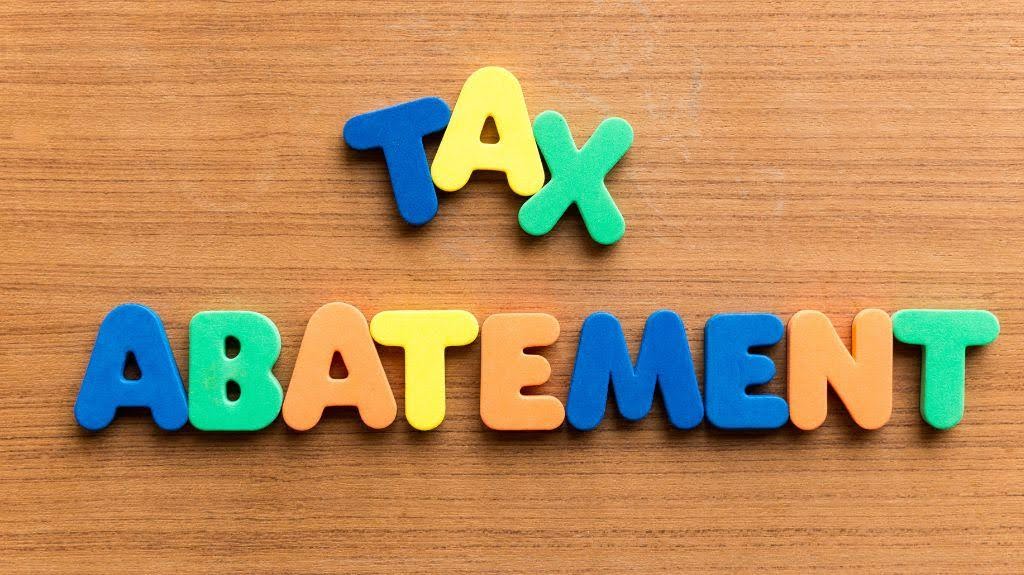

Navigate IRS penalties in Tampa, FL with insights from J. David Tax Law. Explore penalty types, calculations, and avoidance strategies.









A North Carolina wage garnishment attorney specializing in unpaid taxes can provide expert guidance and representation to help resolve your tax issues. They can assist in negotiating with the IRS or state tax agencies, stopping wage garnishments, releasing existing garnishments, exploring options for debt settlement or payment plans, and protecting your rights throughout the process. Consulting with an experienced tax attorney will ensure you receive personalized advice tailored to your specific circumstances and maximize your chances of achieving a favorable resolution. J. David Tax Law LLC is here to help combat the IRS and get you relief from those unpaid taxes.
When facing wage garnishment or tax levy from the IRS for unpaid taxes in North Carolina, individuals may encounter various implications and legal outcomes. Financial hardship is a common consequence, as wage garnishment can significantly impact an individual’s ability to meet living expenses, pay bills, and support their family. This reduction in income often leads to challenges in maintaining financial stability. The process is also emotionally taxing. Dealing with wage garnishment and the stress of unresolved tax debts can weigh heavily on mental well-being, leading to increased personal stress and anxiety.
Additionally, unpaid tax debts and wage garnishment can adversely affect credit scores and overall creditworthiness. This situation can hinder an individual’s ability to secure loans, access favorable interest rates, or in some cases, even affect qualifications for housing or employment opportunities.
Legally, ignoring unpaid taxes and failing to resolve wage garnishment can escalate to more severe consequences. Taxing authorities may pursue further actions, such as asset seizure, bank levies, or the filing of tax liens against personal property. These measures can have long-term impacts on an individual’s financial and legal standing.
However, there is a path to resolution and relief. Seeking assistance from a knowledgeable tax attorney in North Carolina can be immensely beneficial. These professionals can guide individuals through the process, negotiate with taxing agencies, and explore resolution options. Their involvement can be crucial in stopping or lifting wage garnishments, providing a pathway to financial recovery. One of the leading tax law firms for providing this assistance is J. David Tax Law LLC. With their vast experience and knowledge, they are equipped to handle any IRS trouble you may find yourself in.
Understanding rights and exploring legal options are essential steps for anyone in North Carolina facing wage garnishment due to unpaid taxes. Professional advice and representation can offer significant relief and assistance in resolving outstanding tax debts.


Navigating through wage garnishment and levies by the IRS can be overwhelming, especially when you are already facing financial challenges. Engaging the services of a skilled wage garnishment attorney can provide invaluable guidance and support throughout the process.
For instance, let’s say you receive a Notice of Intent to Garnish your wages and you find it difficult to understand the steps you need to take or the legal jargon presented in the notice. A wage garnishment attorney will be well-versed in tax laws and can help decipher the complexities, ensuring that you fully comprehend your rights and responsibilities.
A knowledgeable tax attorney will have experience dealing with the IRS and state tax agencies, understanding their processes and requirements. They will serve as your advocate, representing your best interests during negotiations and seeking a resolution that is favorable to you. Their expertise allows them to develop strategic approaches tailored to your unique circumstances.
Furthermore, a North Carolina wage garnishment attorney can help relieve some of the burdens associated with dealing with tax agencies by handling communication on your behalf. This includes responding promptly to notices, gathering relevant documentation, and addressing any concerns or inquiries raised by the tax agency.
By engaging legal assistance, you gain an ally who can guide you through each step of the process, ensuring that deadlines are met, paperwork is accurately completed, and negotiations are skillfully conducted. This not only saves you time and effort but also increases the likelihood of reaching a satisfactory resolution while minimizing the impact on your finances.
We can provide you a free consultation on your tax debt.
I want a free ConsultationWhen confronted with tax debt, it’s essential to be aware of the various remedial options available to taxpayers. Understanding these alternatives can help you find a path forward toward resolving your tax issues.
One viable option is entering into an installment agreement with state tax agencies or the IRS. This arrangement allows taxpayers to make monthly payments over an extended period until their tax debt is fully satisfied. By entering into an installment agreement, you can avoid immediate harsh measures such as wage garnishment or asset seizure.
Another potential remedy is pursuing an offer in compromise (OIC). This option allows eligible taxpayers to settle their tax debt for less than the total amount owed. The process involves demonstrating to the taxing authority that paying the full amount would cause undue financial hardship. An experienced tax attorney can assist in preparing a compelling offer in compromise proposal that maximizes your chances of success.
For individuals facing extreme financial hardship, another avenue worth exploring is being deemed currently not collectible (CNC). This status acknowledges that you lack the means to repay your outstanding tax debt at present. While it provides temporary relief from collection efforts, interest and penalties may continue to accrue on the unpaid balance.
Some may consider bankruptcy as a potential option for discharging tax debt; however, it’s important to note that this avenue is subject to strict criteria and may not be applicable in all situations. Consulting with a knowledgeable tax attorney is crucial to evaluate the feasibility of bankruptcy as a solution for your specific tax debt circumstances.
Let’s consider an individual facing significant tax debt that they are unable to pay. After exploring available remedial options, they may determine that an installment agreement is the most suitable course of action given their financial circumstances. A tax attorney can assist in negotiating favorable terms and ensuring compliance with the requirements set forth by state tax agencies or the IRS.
Our tax relief attorneys specialize in tax problems and tax debt resolutions
Get started with a 100% free consultation
In the complex landscape of wage garnishment for unpaid taxes, understanding the legal protections and limitations afforded to taxpayers in North Carolina is critical. Wage garnishment, while a legitimate tool for tax collection, is also bound by legal frameworks designed to protect individuals from undue hardship.
One key protection is the exemption amount, which ensures that a certain portion of an individual’s income is shielded from garnishment. This safeguard is crucial as it helps maintain a basic standard of living, ensuring that individuals can meet essential living expenses despite the garnishment. In addition to this, taxpayers have the right to appeal against a wage garnishment order. This process provides an opportunity to contest the garnishment if it is believed to be wrongful or if it poses an extreme financial hardship, offering a channel for recourse and fair hearing.
Moreover, legal protections extend to the realm of employment. The law prohibits employers from dismissing or discriminating against an employee solely because their wages are being garnished for unpaid taxes. This protection is vital in preventing further financial instability and job insecurity for those already facing the stress of wage garnishment. However, these protections have their limitations. For instance, if an individual has multiple wage garnishments, the employer’s stance might change, as handling multiple garnishments can be administratively burdensome.
It is important for individuals facing wage garnishment in North Carolina to be aware of these legal protections. Knowing one’s rights can not only provide a sense of security but also empower individuals to navigate the garnishment process more effectively. However, understanding the limitations of these protections is equally important, as it helps set realistic expectations and prepares individuals for potential scenarios they might face. In any case, seeking the counsel of a knowledgeable tax attorney is advisable to navigate these legal waters with greater certainty and support.
A North Carolina wage garnishment attorney can help with resolving unpaid taxes by providing legal guidance and representation throughout the settlement process. They can negotiate with the tax authorities on behalf of their clients, aiming to lower the total amount owed or set up an affordable payment plan. Furthermore, they can also assist in stopping or lifting wage garnishments, protecting the individual’s income.
A North Carolina wage garnishment attorney offers a range of services to help individuals facing wage garnishment due to unpaid taxes. These services may include negotiating with the IRS or state tax authorities to reduce the amount owed, filing necessary paperwork and forms, representing clients in court or administrative hearings, and providing guidance on financial planning and budgeting to prevent future wage garnishment.
Wage garnishment in North Carolina for unpaid taxes works by the state or federal government obtaining a court order to withhold a portion of a taxpayer’s wages to satisfy their tax debt. In North Carolina, the law allows up to 10% of disposable income to be garnished for unpaid taxes. This process can continue until the tax debt is paid off or a resolution is reached. It’s important for individuals facing wage garnishment to seek legal help from a qualified North Carolina wage garnishment attorney who can provide guidance and potentially negotiate with tax authorities to reduce the amount being garnished or find alternative solutions.
In North Carolina, the legal consequences of unpaid taxes can be severe. The state can initiate wage garnishment, bank tax levy, or file a tax lien against your property. Additionally, the Department of Revenue has the authority to revoke your driver’s license and place a hold on your passport. Penalties, interest, and collection fees will also accrue, making it even more difficult to settle your tax debt.
When hiring a North Carolina wage garnishment attorney, it is crucial to look for certain qualifications and expertise. Firstly, ensure that the tax attorney specializes in tax law and has experience specifically in wage garnishment cases. Additionally, look for a tax attorney who is licensed to practice in North Carolina and is familiar with the state’s specific tax laws and regulations. It is also beneficial to hire a tax attorney who has a track record of successfully negotiating or litigating wage garnishment cases. Finally, consider seeking recommendations from trusted sources or looking for testimonials from previous clients to gauge the tax attorney’s reputation and level of client satisfaction.


Navigate IRS penalties in Tampa, FL with insights from J. David Tax Law. Explore penalty types, calculations, and avoidance strategies.


Fayetteville tax attorneys in 2024 offer penalty abatement solutions for tax debt. Learn eligibility criteria and appeals process for relief.


Discover how J. David Tax Law complaints against the IRS can resolve disputes with proven strategies. Get expert help now at (904) 674-3268!